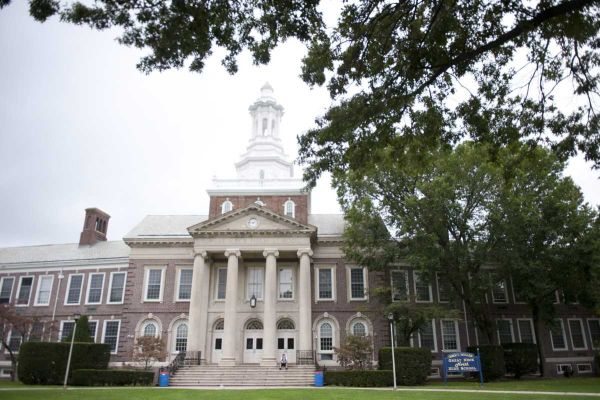
Part 3 of a three-part series regarding our community’s response to the opioid epidemic
Opioid use is on the rise across America, regardless of socioeconomics, gender, class or race. In fact, in Great Neck and on Long Island’s North Shore, there have been a growing number of fatal drug overdoses in recent years.
Narcan Training Can Save Lives
After a potentially fatal drug overdose, a person can live for as many as three hours before his or her heart stops, which I learned during training on how to save a life following an overdose.
In the case of opioids and heroin, the effects of an overdose can be reversed by administering Naloxone, aka Narcan. In combination with rescue-breathing, a single dose of Narcan can turn someone who has stopped breathing and is turning blue into someone who lives to see another day. It is literally a life-saving medication.
The training at Zucker Hill Hospital was headed by Dr. Belinda Greenfield, a national expert on drug rehab and recovery, who gave a presentation on Medication Assisted Treatment (MAT) options on behalf of the New York State Opioid Treatment Authority.
Opioid Treatment
Nearly 80 percent of individuals with opioid addiction do not receive treatment due to lack of access to resources, lack of awareness, lack of family support, shame and stigma. For those who do seek help, there are different paths for recovery and options for care. In all cases, there is screening, brief intervention and then a referral to long-term treatment. Referral resources can be found at www.samhsa.gov/sbirt.
Psychotherapy in combination with MAT saves lives. Individuals receiving treatment often demonstrate dramatic improvement in addiction-related behaviors and psychosocial functioning.
Increasingly, experts in the field are recognizing that opioid addiction is a chronic disease which must be treated with an approach similar to that of other diseases, such as diabetes and asthma.
Medication treats withdrawal, reduces cravings, helps individuals continue treatment and prevents relapse. Without treatment, many opioid addicts will die, just like other chronic disease sufferers.
Drugs and alcohol alter brain chemistry. Addiction irreversibly alters neurotransmitters in the brain receptors. Even when individuals stop using drugs, their brain has been affected permanently, especially in the case of opioids.
Since the 1960s, methadone has been the “gold standard” to treat opioid addiction. It is highly regulated by the government, but is deemed extremely safe, even for pregnant women and their newborns. The blocking dose for methadone varies for each individual, and the treatment takes many different factors affecting each person into account. Other medications used to treat opioid addiction include Buphrenorphine and Naltrexone. These medications are not as highly regulated, and may be prescribed by experienced doctors.
What You Can Do to Combat Drug Addiction and Overdose
The Great Neck Public Schools’ UPTC, headed by Michelle Ahdoot, will present Not My Child, a forum offering critical drug-addiction prevention information, tips and resources for parents and teens on Wednesday, Nov. 1, at 7 p.m. The event is open to the entire community and will take place at the Great Neck Main Library, a cosponsor of the event, along with North Shore Action which is moderating the panel.
The presentation will focus on raising awareness of the deadly epidemic. A recent Long Island high school graduate, who is in recovery, will speak. Expert panelists include Amanda Cioffi, education and training supervisor of the Long Island Council on Alcoholism and Drug Dependency; Cathy Samuels from CASA Manhasset; Maria Cuadra of COPAY in Great Neck; Detective Pamela Stark of the Nassau County Police Task Force on Opioids; and Zachary Goldfarb, EMT and Sergeant of Arms of Vigilant Fire Company. A parent task force will be organized, and sign up for Narcan training will be offered.
If you encounter someone who has overdosed and is not breathing, call 911 immediately. Within one to three hours, the effects of an overdose may be reversed with proper treatment. First responders are trained to administer Narcan and a New York State law requires pharmacies to offer Narcan over the counter. So, learn the signs and let’s put an end to this deadly opioid epidemic.
Jacqueline Harounian, a regular contributor to the Great Neck Record, is a trained volunteer at The Long Island Crisis Center and a member of North Shore Action. Read Parts 1 and 2.




























